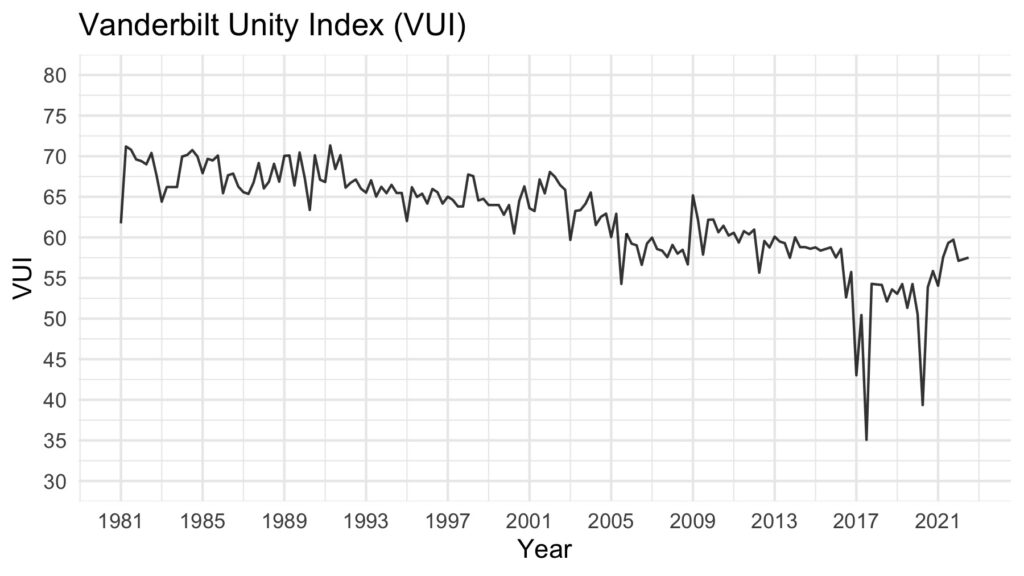The Vanderbilt Project on Unity & American Democracy’s newly released data from the Vanderbilt Unity Index, which measures Americans’ general faith and trust in democracy, shows little change from the second to the third quarter of 2022.
For the second quarter in a row, the Vanderbilt Unity Index, a statistical analysis of unity in American democracy, remained stable even as political ads dominate the airwaves and the effects of inflation hit home.
The index ticked up to 57.5 as of the close of the third quarter, a “statistically insignificant increase” of 0.2 points from June 20, 2022, noted John Geer, Ginny and Conner Searcy Dean of the College of Arts and Science at Vanderbilt University and co-author of the Vanderbilt Unity Index.
“Bearing in mind the events of recent months, the Vanderbilt Unity Index’s stability seems to be an optimistic data point in contrast to the accepted narrative of worsening political divisions,” Geer said.
Neither the increase in political advertising customary in the run-up to midterm elections nor concerns about the country’s economic condition registered much of an impact on the VUI in the third quarter, said Geer, though he noted that their collective impact may not yet have fully rippled through the data.
“The rhetoric and negative advertising increase after Labor Day, so next quarter should prove an interesting comparison. Still, it is encouraging to see that our measurement of unity is currently unfazed, which may contradict the accepted narrative that our national divisions worsen by the day,” he said.
The VUI is composed of five inputs from publicly available survey data: strong presidential disapproval, political and ideological extremism, social trust, political and social unrest, and measurements of Congressional polarization. Together, these data points are meant to measure fluctuations in Americans’ general sense of trust in their political institutions and not the reactions of the public to particular policies.
The slight shift in the VUI in the last quarter is explained by a slight decrease in the measurement of political and ideological extremism, while strong presidential disapproval remained consistent across the six-month period.
Two of the five units measured by the index—congressional polarization and societal distrust—are updated every two years with the turnover of Congress members. When these data are next updated in January 2023, the VUI may show a more substantive shift, Geer said.
